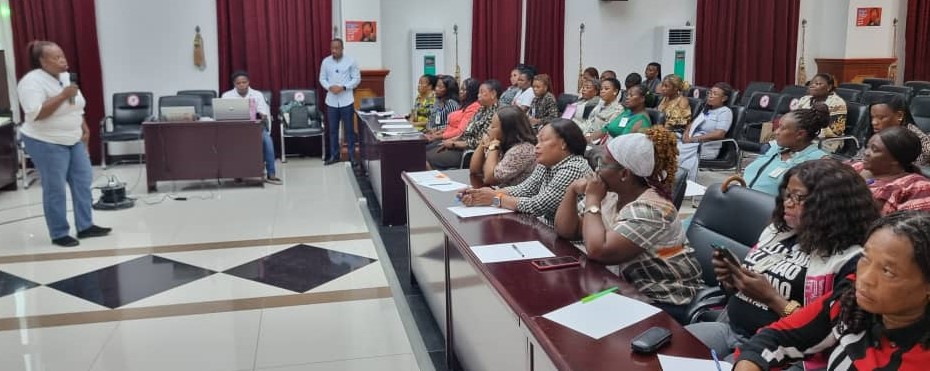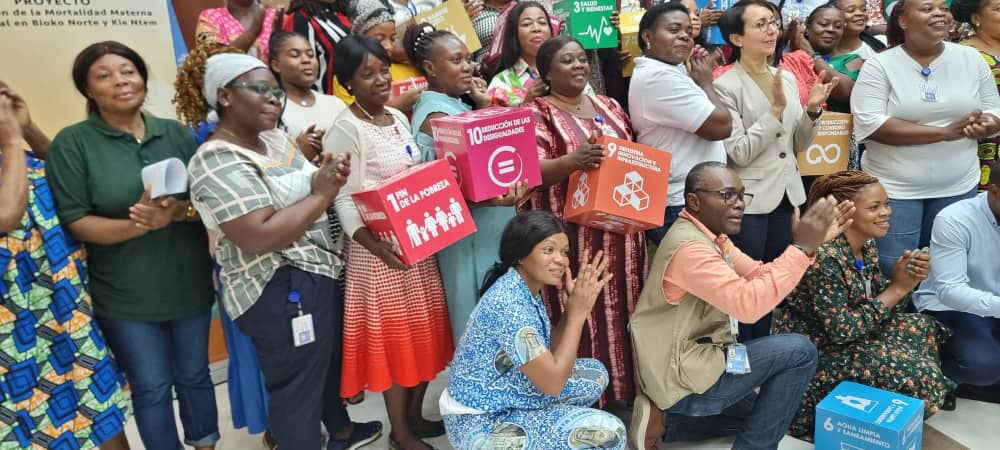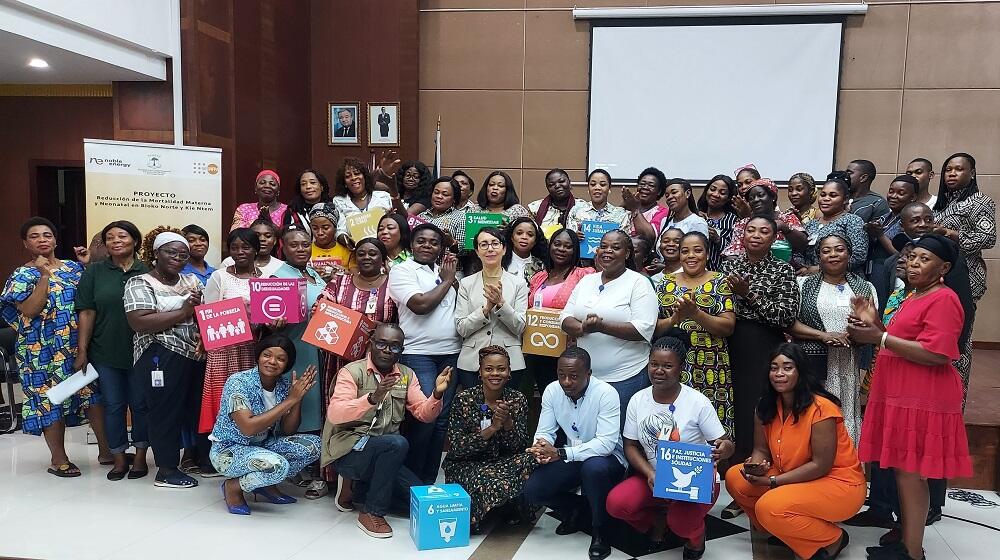MALABO, Equatorial Guinea, June 14, 2024 – Equatorial Guinea recently marked the International Day of the Midwife and Maternal Health Day, highlighting the critical role midwives play not only in providing essential healthcare but also as unsung heroes on the front lines of the global climate crisis.
The theme for this year's International Day of the Midwife, "Midwives: A Vital Climate Solution," resonated strongly in Equatorial Guinea, where weather events and environmental challenges threaten maternal and child health.
The Ministry of Health and Social Wellbeing (National Reproductive Health Program), with support from UNFPA Equatorial Guinea, organized events to celebrate midwives and raise awareness about their role in climate resilience. A national television program highlighted the challenges midwives face in reaching pregnant women during floods or other natural disasters, underscoring their dedication to ensuring safe births under all circumstances.
Trainings were conducted for midwives and midwifery students in the Malabo district, focusing on the psychological impact of climate-related crises on maternal mental health. Midwives were equipped with skills to identify and address these issues, further demonstrating their holistic approach to care.
"Midwives are often the first responders in remote communities when disaster strikes," said Mrs Anastasia Mazig, a representative of the PNSR. "Their ability to provide up to 90% of essential sexual and reproductive health services is crucial, especially in times of crisis."
The celebrations also acknowledged the global shortage of midwives and the need to address gender discrimination in the profession. In Equatorial Guinea, efforts are underway to expand midwifery training and improve working conditions to attract and retain skilled professionals.
"Without midwives, countless women and babies would be at risk," said Mrs Asuncion Mbenga Mba Ndoho, a midwife in Malabo. "We are committed to providing quality care, even in the face of climate change challenges."
The training targeted 60 participants: 30 midwives and 30 final-year midwifery students on providing holistic care, including addressing the psychological well-being of mothers during the perinatal period.
The events in Equatorial Guinea serve as a call to action for the global community to invest in midwifery and recognize the invaluable role these healthcare professionals play in building climate-resilient communities and ensuring a healthy future for all.




